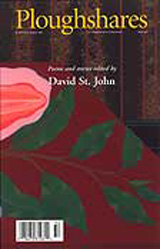Like most pronouns, the relative pronouns who, which, and that have antecedents—nouns or pronouns to which they refer. Usually the antecedent to a relative pronoun appears in the main clause of the sentence. For clarity, the relative pronoun should immediately follow its antecedent:
Yesterday was Valentine’s Day, a holiday that popular belief claims is named after a third-century priest who was executed for performing illegal marriage ceremonies.
Subject-Verb Agreement
Relative pronouns that are the subjects of subordinate clauses take verbs that agree with their antecedents:
Some argue that Valentine’s Day is a holiday that was invented—or at least heavily marketed—by Hallmark.
Questions arise with sentences that include the phrases one of the and only one of the. Chicago prescribes treating one of the constructions as plural and only one of the constructions as singular:
Due to these marketing efforts, Valentine’s Day is one of the few holidays that are celebrated throughout the world.
It is the only one of the myriad holidays that is dedicated to romantic love.
Don’t try applying this guideline on the SAT, though where one is always just that: one—i.e., singular.
Omitted Antecedents
If there isn’t an antecedent, however, what can be used to mean that which:
Is that what you meant by sending me a Valentine’s Day card?
The Mots Justes Series on Pronouns
Part II—Location, Location, Location
Part V—Gender, Plus “They” as a Gender-Neutral Singular Pronoun
Part VII—Something Personal Between You and Me
Part X—Indefinitely (We, You, and They)
Resources
Chicago Manual of Style, The. 15th ed. Chicago: The University of Chicago Press, 2003.
Hacker, Diana, The Bedford Handbook for Writers, 3rd ed. Boston: St. Martin’s Press: 1991.







